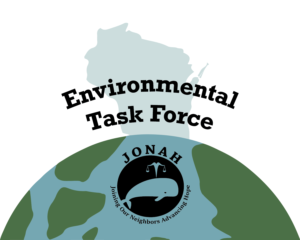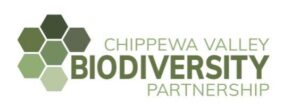
The JONAH (ETF) collaborates with other organizations in the Chippewa Valley to bring about change in the following areas:
Single Use Plastics
Every bit of plastic that has ever been created still exists. We depend on plastic and now we’re drowning in it. Our rivers and parks are feeling the impact of the plastic epidemic, and it is threatening the health of our communities. The ETF collaborates with many groups throughout the community to bring about change by raising awareness about alternatives to single use plastics. Scroll down to learn what you can do.
Food Waste
A recent DNR audit revealed that 35-40% of landfill waste consists of food or compostable paper products. Composting programs divert waste from the landfill and also create a rich soil amendment – a win-win solution to an ever growing landfill. Learn more about how you can compost at home or your place of business by contacting the email listed below for resources.
Biodiversity
Biodiversity refers to the variety of animals, plants, fungi, and microorganisms that make up our natural world, working together in an intricate web to maintain balance and support life on earth. Biodiversity has declined at an alarming rate in recent years, largely as a result of human activity including: 1) deforestation and destruction of natural habitats; 2) over-exploitation of natural resources; 3) invasive species; 4) pollution; and 5) climate change. These five direct drivers result from an array of underlying causes of change, which are, underpinned by social values, attitudes, knowledge and behaviors. Twenty-five percent of global animal and plant species are threatened, and one million species face extinction on earth unless action is taken to reduce the causes of biodiversity loss. Biodiversity is fundamental to human well-being, a healthy planet, and economic prosperity for all people. Humans depend on it for food, medicine, energy, clean air and water, security from natural disasters as well as recreation and cultural inspiration, and it supports all systems of life on Earth.
To protect and preserve biodiversity, the JONAH ETF is part of the Chippewa Valley Biodiversity Partnership.
What can you do?
1. Get involved with the work of the JONAH ETF.
-
- Email: [email protected] for more information
- Fill out our interest survey so we can connect you to an action team.
2. Pledge to reduce single-use plastic in your life
3. Start a Green Team at your faith community or place of employment. Join the Interfaith Green Teams to learn what other congregations have done. Contact [email protected] for more information.
4. Read “Nature’s Best Hope” by Douglas Tallamy to learn what you can do in your own yard to increase biodiversity or watch his 45 minute presentation.

